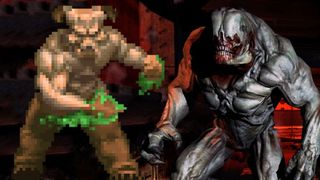

To find such entertainment, sighted people need only look as far as their local computer store. In the inaugural Audyssey, he wrote that his magazine would be “dedicated to the discussion of games which, through accident or design, are accessible to the blind”: As an adult, he remembered thinking that he could have been playing more of those games if only the designers had been more deliberate about the information their sounds conveyed. His dad had taken him to video arcades and helped him play some of the games, and Feir found the universe of fascinating, otherworldly sounds incredibly compelling, even if most of the games weren’t designed for someone like him to enjoy. Feir, though blind, had been an avid gamer his whole life, attributing his typing proficiency and computer expertise to gaming on the Apple IIe as a child. In 1996, 22-year-old Michael Feir had founded Audyssey, a bimonthly online magazine and mailing list for blind gamers. Many yearned for a day when “tried and true Interactive Fiction an option instead of ‘the’ option.” “The games were okay, but nothing like what sighted gamers had for PC or console.” The text adventure fan community was thriving and counted many blind players among its ranks, but not all blind gamers were interested in interactive fiction, or at least not exclusively. While a handful of games had been created targeting blind players, most “were things like Football, Monopoly, Blackjack, Battleship,” gamer Thomas Ward remembered. As mainstream gaming chased more and more elaborate graphics, blind players felt increasingly isolated from a once-welcoming hobby. But save for interactive fiction and specialty edutainment, few computer games in the late 1990s were accessible to the blind.

Parser interactive fiction like Suspended, social MUDs like LambdaMOO, and other text-driven games could be played by those with limited or no sight with relative ease, simply by routing the game’s output to a screen reader that converted text to synthesized speech. For blind gamers, the survival of text games was an existential issue. Some didn’t care for (or couldn’t play) the frenetic action of more mainstream games. Some loved the written word and preferred the metaphor of interactive books to interactive films. Fans had varying reasons for wanting to keep text games alive. Good hunting, soldier.Īs text games faded from the bestseller lists in the 1990s, it fell to amateur enthusiasts to keep new games coming and old titles playable.


 0 kommentar(er)
0 kommentar(er)
